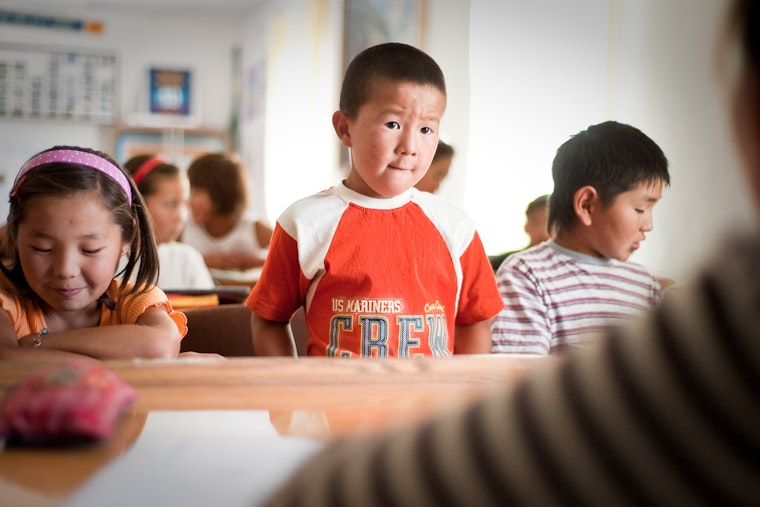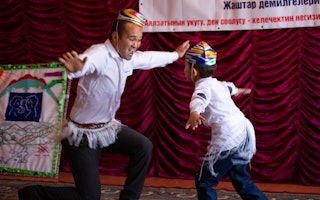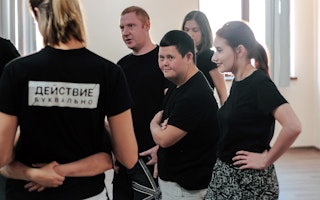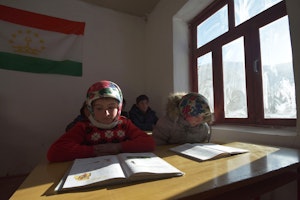How Civil Society Can Best Support Inclusive Education
By Nabina Panday & Olga Yarova

Not long ago, a mother in Kyrgyzstan tried to register her son Maxim (not his real name) for school. Maxim has Down syndrome, but his mother, like every mother, still has dreams for his future and a desire to provide him with the best education possible.
Because she did not have the option of enrolling him in a “regular” kindergarten, however—and because kindergartens for children with Down syndrome are notoriously inadequate, due to a widespread and mistaken belief that children with Down syndrome are unable to learn—Maxim’s mother wanted to enroll him in a kindergarten for children with cerebral palsy instead.
A requirement for entry into one of Kyrgyzstan’s limited number of specialized kindergartens is going to the city’s “Assessment Center” and gaining the examiner’s permission to attend the special kindergarten or school. But almost immediately upon seeing Maxim, the examiner refused to recommend him to the specialized kindergarten his mother had chosen.
And according to Maxim’s mother, the examiner didn’t even bother assessing Maxim for intellectual disability or cognitive delays. They seemingly made up their mind on first sight.
The injustice of what happened to Maxim and his mother should be self-evident. Sadly, though, her experience is not only not unusual; it’s downright common. Throughout Central Asia and Eastern Europe—and, indeed, throughout much of the world—longstanding and deeply rooted misconceptions about the capacities and rights of children with disabilities are common.
In many cases, to escape stigmatization, parents prefer not to inform teachers that their children have disabilities. But that’s hardly a fair or viable solution. And according to a recent UNICEF estimate, there are 3.6 million children with disabilities in the region who are not in school at all. What about their rights, their dreams, their futures?
These questions don’t have easy solutions. Addressing them will require difficult but necessary conversations, as well as an unprecedented amount of cooperation and information sharing. But in order to find solutions, it is vital that civil society groups, government officials, and practitioners work together. Otherwise, the weight of broken systems will continue to fall on the shoulders of those who can least bear it.
Although there has been progress at the policy level—all the countries in Central Asia and Eastern Europe have become a party to the United Nations Convention on the Rights of Persons with Disabilities—what is lacking is a bridge to connect civil society groups to government officials and practitioners; and vice versa.
In order to address this need, the Open Society Foundations are working closely with the American University of Central Asia in the Kyrgyz Republic to organize a series of “summer schools” to bring parents, teachers, government officials, and civil society groups together. While these summer schools are just a start, the early results are encouraging.
Already, people from Tajikistan, Kazakhstan, Kyrgyzstan, Armenia, and Ukraine are trading ideas and recognizing shared obstacles. Already, parents in the region are feeling more empowered to organize and advocate for their children. There are plans to expand these initiatives and to create virtual platform equivalents, too.
We believe that, in the long-term, these initiatives will help change the way people in Central Asia and Eastern Europe think about inclusive education. Because no mother should have to suffer like Maxim’s mother, and because every child has a fundamental right to a quality education—no matter where they come from, and no matter their disability.
Nabina Panday is a program officer with Equity for Global Programs at the Open Society Foundations.
Olga Yarova is an assistant professor of psychology at the American University of Central Asia in Kyrgyzstan.


